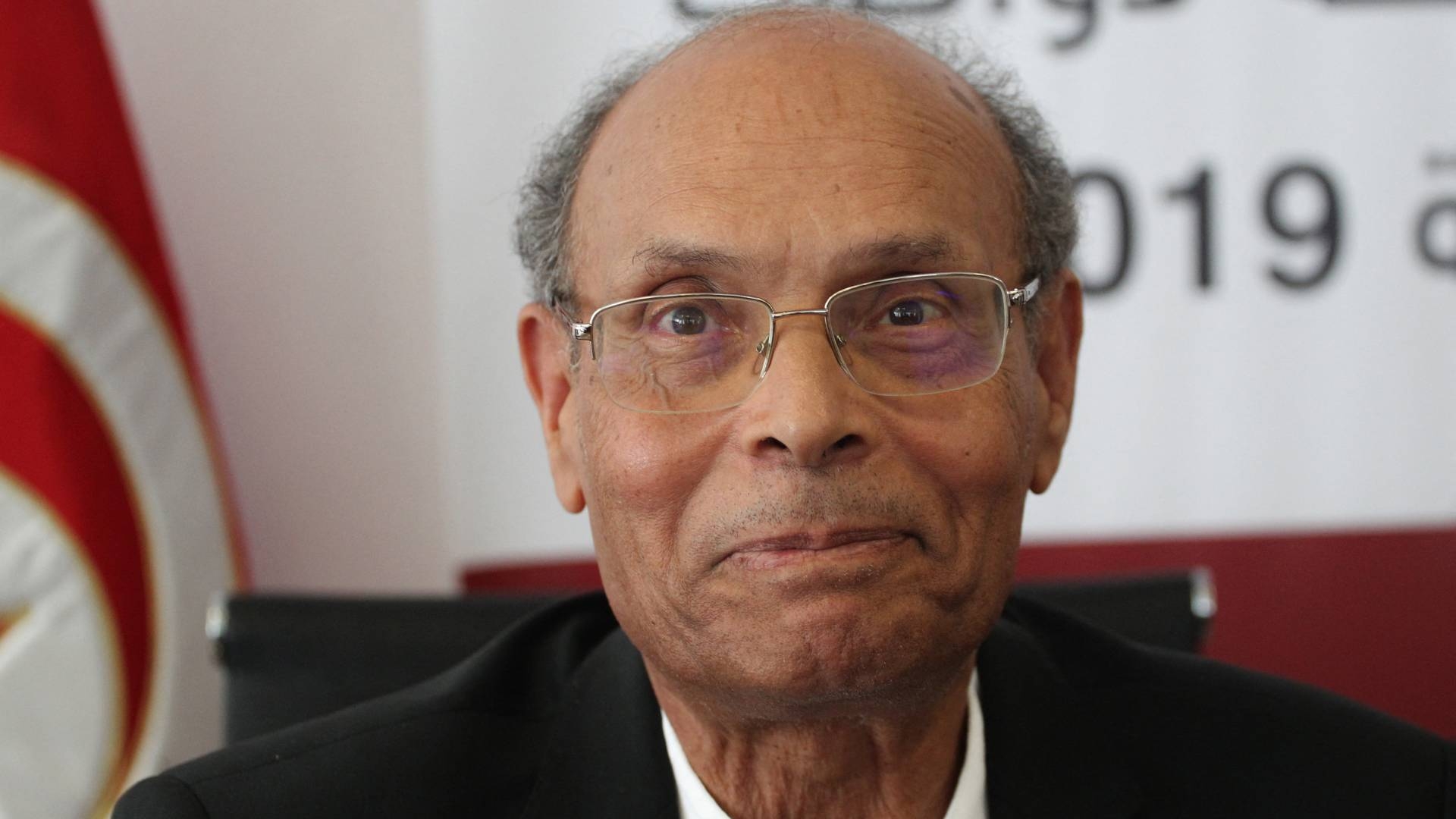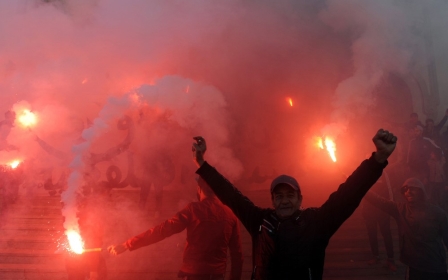Tunisia: Former president Marzouki sentenced to four years in prison

Moncef Marzouki, former president of Tunisia, was on Wednesday sentenced to four years in prison on charges of "assaulting the state's external security", the Tunis Afrique Presse (TAP) has reported.
A Tunisian court said that Marzouki, who was sentenced in absentia, has been connected to agents of a foreign country that have a goal of "harming the diplomatic situation of Tunisia". It added that the sentence has "permission for immediate enforcement".
Stay informed with MEE's newsletters
Sign up to get the latest alerts, insights and analysis, starting with Turkey Unpacked
Marzouki, who was president of Tunisia from 2011-2014, has emerged as a vocal critic of President Kais Saied.
In a speech in Paris in October, he urged France, Tunisia's former colonial power, not to help "the dictatorial regime in Tunisia" and labelled Saied a dictator.
Tunisia descended into a political crisis in late July when Saied, a former constitutional law professor, suspended the country's parliament, sacked the prime minister and granted himself prosecutorial powers, in effect taking full control of the state and sidelining all opposition.
Saied has defended the measures, claiming they were necessary to fight skyrocketing unemployment, rampant corruption, and the coronavirus pandemic. But his political opponents and rights groups have described it as a power grab.
He also initially said the measures he took would be temporary in order to make the state more responsive to the widespread frustrations of Tunisians, but he has yet to show signs of backing down and has instead shown a willingness to attack critics.
'Desrtuctive policies'
Earlier this month, Marzouki spoke in Washington ahead of the Joe Biden administration's democracy summit, where he urged the administration to support democracy across the Middle East by working with civil society groups rather than authoritarian leaders.
Marzouki's diplomatic passport had already been withdrawn by Saied, following the former president's speech in Paris, and the TAP news agency has reported that an international arrest notice has been issued against him.
Interpol has, however, not publicly issued any such "red notice", the closest legal instrument to an international warrant.
After issuing an international arrest warrant, Saied called on the newly-appointed justice minister to open an investigation into Marzouki to find out whether he had conspired against state security.
Marzouki said in a recent interview with Al Jazeera Arabic that while he was not surprised about the arrest warrant placed on him, it was a dangerous situation for all Tunisians, especially those that opposed Saied's power grab.
Last week, Ghazi al-Shawashi, the secretary general of the Democratic Current party, a major Tunisian political party, said that Saied was "no longer capable of saving the country".
Shawashi added that the country was in a state of "complete crisis and isolation as a result of Kais Saied's destructive policies".
Middle East Eye delivers independent and unrivalled coverage and analysis of the Middle East, North Africa and beyond. To learn more about republishing this content and the associated fees, please fill out this form. More about MEE can be found here.





